Top Hydrogen Cars
Top Hydrogen Cars
Skip to ContentSkip to Footer
Hydrogen fuel cells: do hydrogen cars have a future?
With sales of electric vehicles increasing, do hydrogen fuel cell cars have a future on our roads?
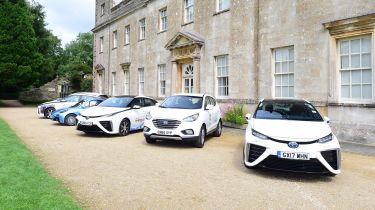
With battery electric vehicles being hailed as the future of green motoring, hydrogen-powered cars have been somewhat overlooked by the masses. Car makers have been experimenting with hydrogen fuel-cell technology for a number of years, trying to crack the formula for using the most abundant and cleanest resource in the universe. However, due to a number of hurdles, mass uptake still looks to be a long way off.
At the time of writing, there are only two mainstream hydrogen-powered cars on sale: the Toyota Mirai and Hyundai Nexo. There are more hydrogen-powered cars and vans confirmed to be on the way, though, with brands such as BMW, Land Rover and Vauxhall all planning releases within the next five years.
One of the biggest reasons for this very slow uptake of hydrogen vehicles is the existing infrastructure. In late 2021, there were only 12 hydrogen-fuel stations in the UK, far less than the amount of petrol stations and public charge points. More hydrogen filling stations are planned, but for now, not having a filling station nearby is clearly impractical for many people.
One of the biggest reasons for this very slow uptake of hydrogen vehicles is the existing infrastructure. In late 2021, there were only 12 hydrogen-fuel stations in the UK, far less than the amount of petrol stations and public charge points. More hydrogen filling stations are planned, but for now, not having a filling station nearby is clearly impractical for many people.
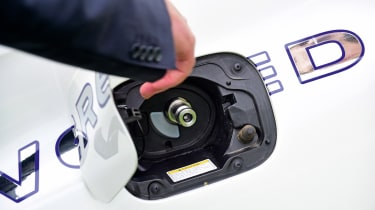
This, along with several other production hurdles are apparently being overcome, though, and hydrogen could still find itself as a much more prominent fuel in the future.
The sceptics' first argument against hydrogen vehicles is that they're less efficient than EVs are. Because hydrogen doesn't occur naturally, it has to be extracted, then compressed in fuel tanks. It then has to mix with oxygen in a fuel cell stack to create electricity to power the car's motors. Cynics point to the efficiency loss in this process when compared with an electric car in which the electricity comes straight from a battery pack.
That's true to an extent, but hydrogen-powered cars are not expected to replace EVs. Instead, hydrogen is intended to complement electric power, and there's a good reason for this: it is the cleanest fuel possible.
In comparison, Lithium-ion battery production for electric cars is very energy-intensive. As an example, a 100kWh battery will take around 20 tonnes of CO2 to produce. A typical battery lasts for 150,000 miles, so that equates to around 83g/km of CO2. Then, when you take into account charging over that same distance, the same battery car will deliver 124g/km of CO2 over its lifetime.
In comparison, today's hydrogen cars have life-cycle emissions that are at least as low. A recent study found a hydrogen car emits around 120g/km of CO2 over its lifetime. But this can be brought significantly down when hydrogen is produced from renewables.
A common method of hydrogen production involves separating it from natural gas, using a process called steam methane reformation. Work is also underway to obtain hydrogen from biomass, which would significantly cut the life-cycle emissions from hydrogen to around 60g/km CO2. This is below the level that EVs will achieve, even when electricity is sourced from renewable sources, because of the environmental costs of battery production.
For truly sustainable mobility, hydrogen is a fuel that cannot be ignored. It is also regarded as a potential alternative for fuelling HGVs, where electric trucks are hampered by battery capacity and having to recharge using the power grid. The biggest downside, though, is that developing a full hydrogen refuelling infrastructure, where the gas is produced and then transported to stations, will take billions of pounds and a number of years to develop.
The key to encouraging hydrogen vehicles is by making them part of a wider 'hydrogen economy' – building refuelling stations for hydrogen cars alone would be inefficient. Instead, ideally, the whole energy sector would incorporate hydrogen into the mix, from refuelling cars to storing energy for homes.
Another benefit of hydrogen is that it can be produced on site rather than being transported like fuel, or supplied through the grid like electricity.
But even with hydrogen infrastructure in place, be it local or nationwide, hydrogen vehicles still face the issue of costs. The Toyota Mirai retails from upwards of £54,000. That is a lot to pay for any car, but, as with electric cars, as the technology improves and becomes more mainstream, prices should start to fall.
There are still a lot of 'ifs' about hydrogen, but there are far fewer today than there were a decade ago.
Hydrogen isn't the only alternative to electric power, click here to find out more about synthetic fuels .
Recommended
Best electric car chargepoint providers 2021
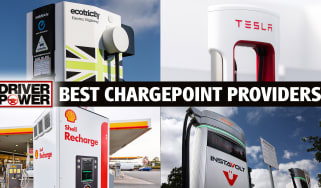
Features
Best electric car chargepoint providers 2021
Public electric car chargers are an essential part of the electric car ownership experience and Driver Power has revealed the best networks in the UK …
3 Dec 2021
New 2022 Polestar 3: electric SUV shown in new image
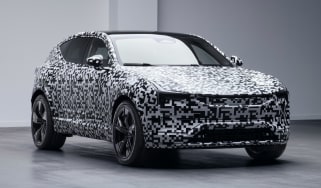
Polestar 3 SUV
New 2022 Polestar 3: electric SUV shown in new image
Polestar gives best look yet at its third production model, which will be built in the US and promises to be "one of the most climate-responsible cars…
3 Dec 2021
New Mercedes Vision EQXX: launch date set for 3rd January 2022
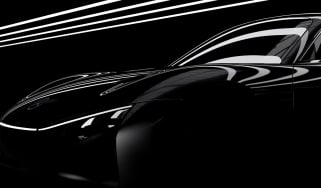
Mercedes
New Mercedes Vision EQXX: launch date set for 3rd January 2022
Mercedes will pull the wraps off its Vision EQXX EV prototype next year – and the company says it will have a real-world range of 620 miles
29 Nov 2021
Electric car charging in the UK
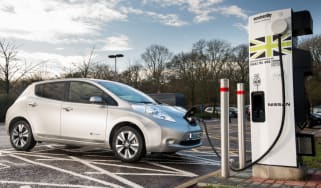
Electric cars
Electric car charging in the UK
The UK's electric car charging infrastructure has changed substantially in the past 12 months but can it make an EV suit your lifestyle?
26 Nov 2021
Most Popular
New seven-seat Dacia Jogger priced from £14,995
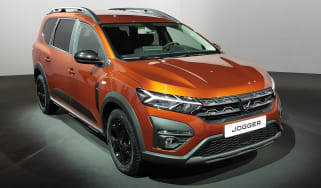
Dacia Jogger
New seven-seat Dacia Jogger priced from £14,995
Pre-orders open for the new Dacia Jogger ahead of 2022 deliveries, and low prices make it Britain's cheapest seven-seater
1 Dec 2021
Drivers hit by 'hidden' charges in car insurance small print

News
Drivers hit by 'hidden' charges in car insurance small print
A new survey shows that Brits are coughing up a third of their car insurance premiums on 'hidden fees'
1 Dec 2021
Toyota to offer specialized electric car 'hubs' for bZ4X sales
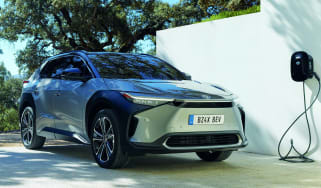
Toyota
Toyota to offer specialized electric car 'hubs' for bZ4X sales
Dealers will deliver series of specialized EV retail points to sell Toyota's first bespoke EV, the bZ4X SUV
2 Dec 2021
Skip to HeaderSkip to Content
Source: https://www.autoexpress.co.uk/electric-cars/93180/hydrogen-fuel-cells-do-hydrogen-cars-have-future

Leave a Comment